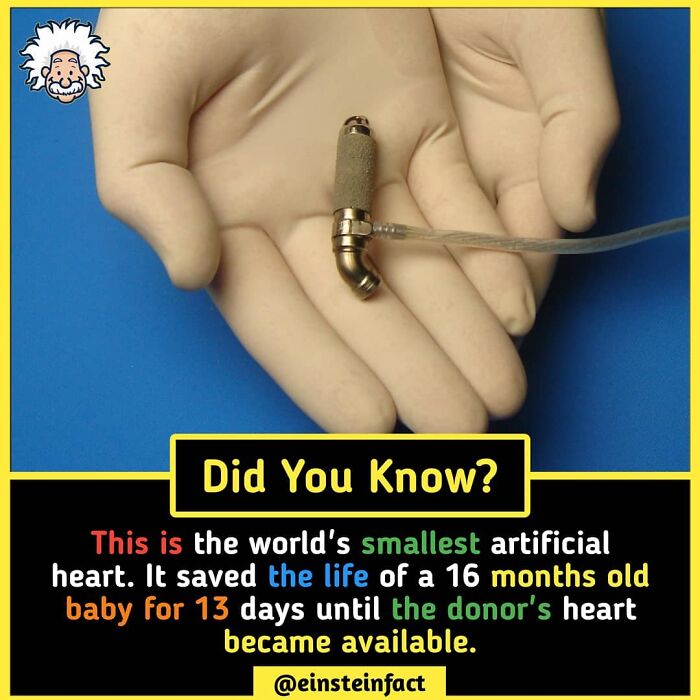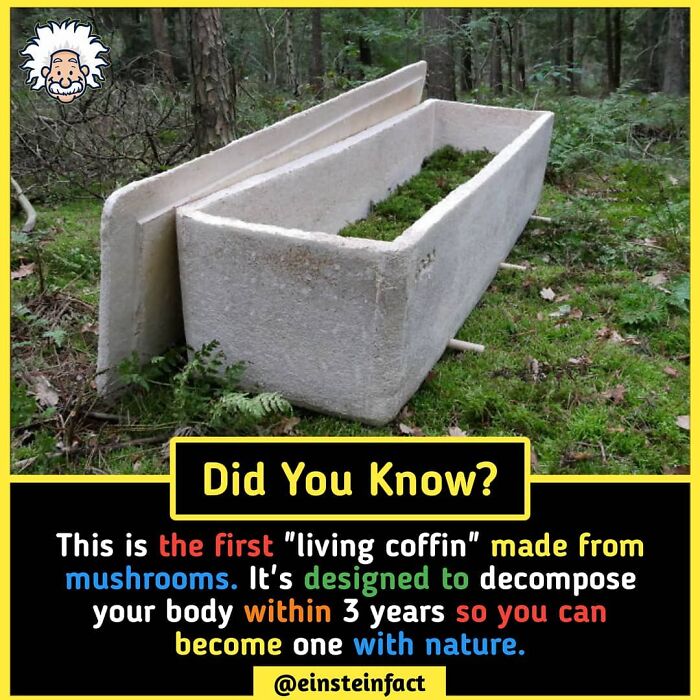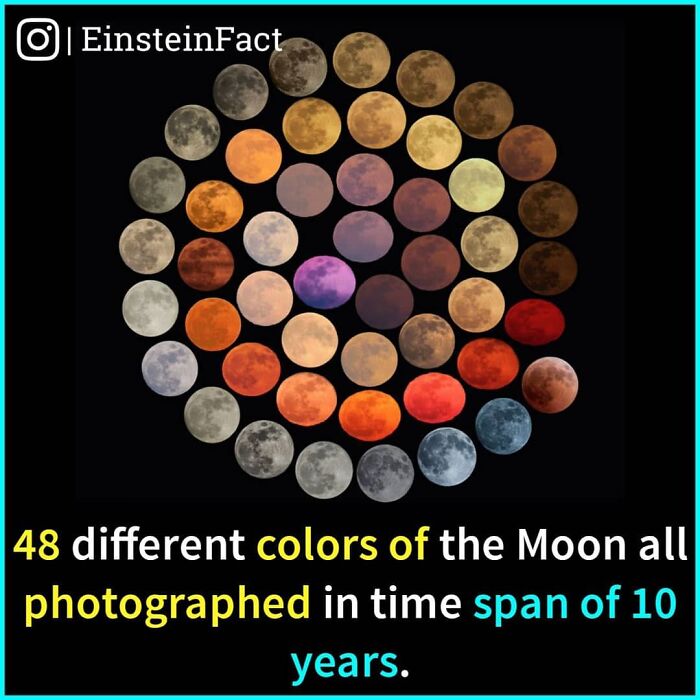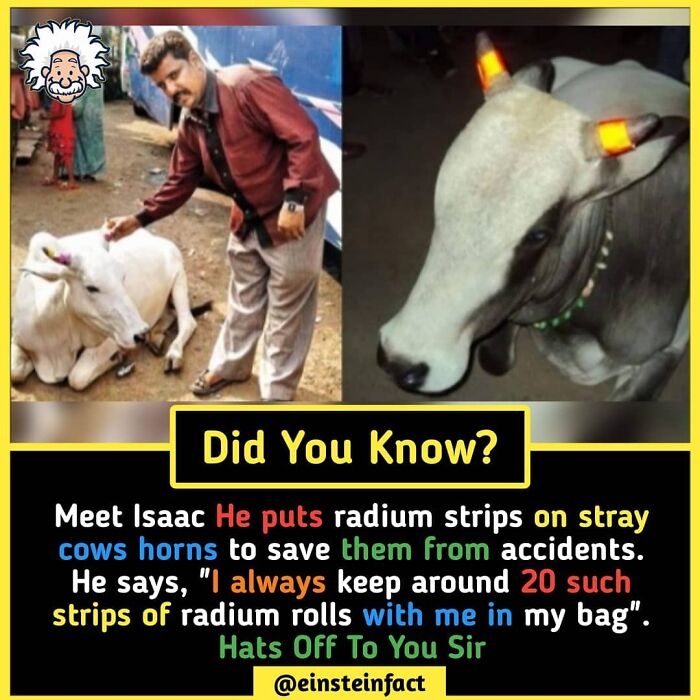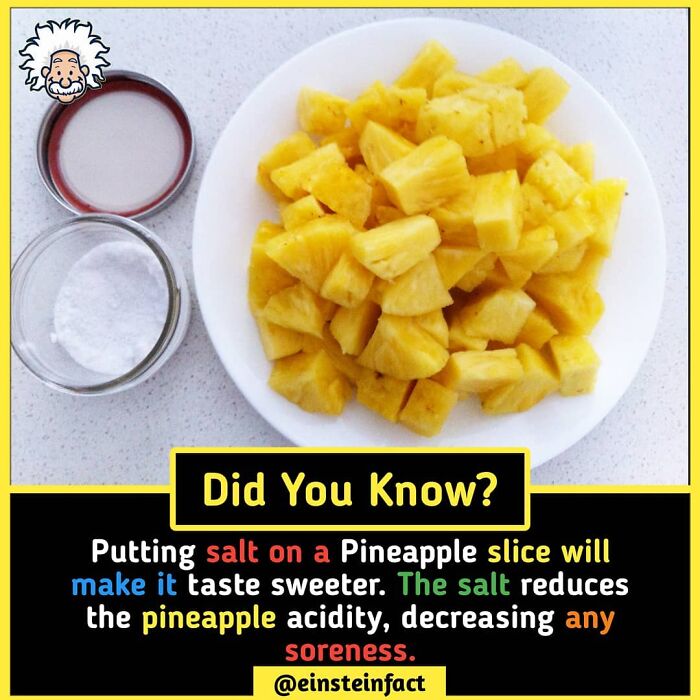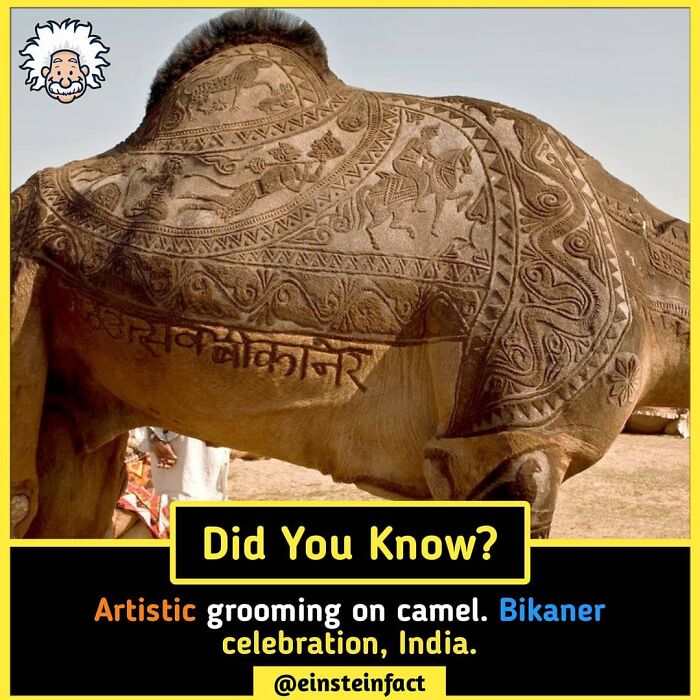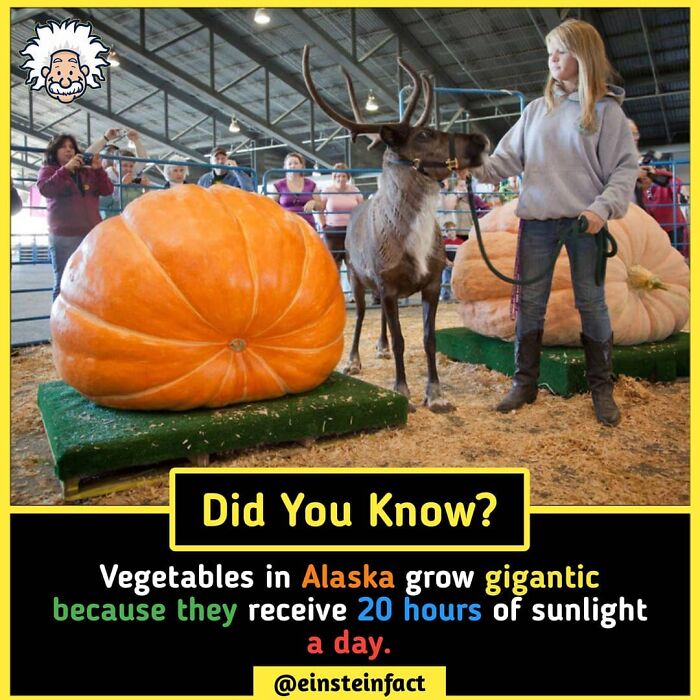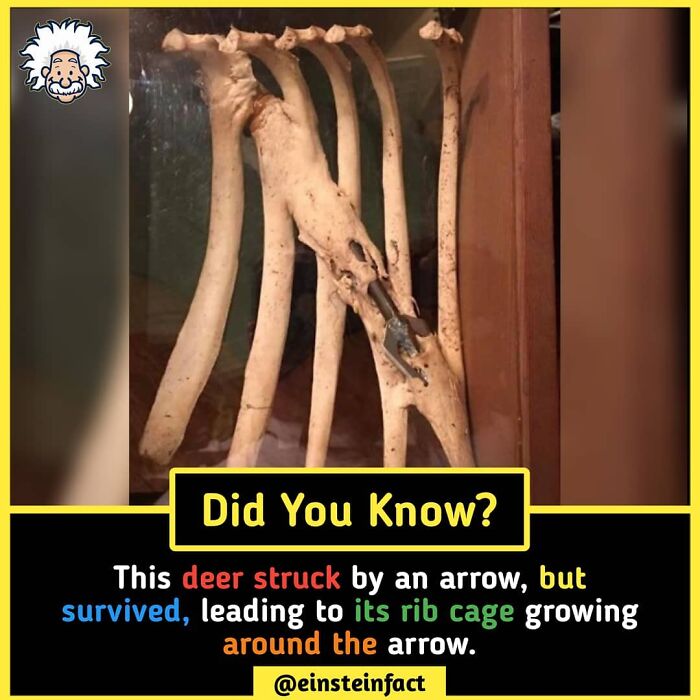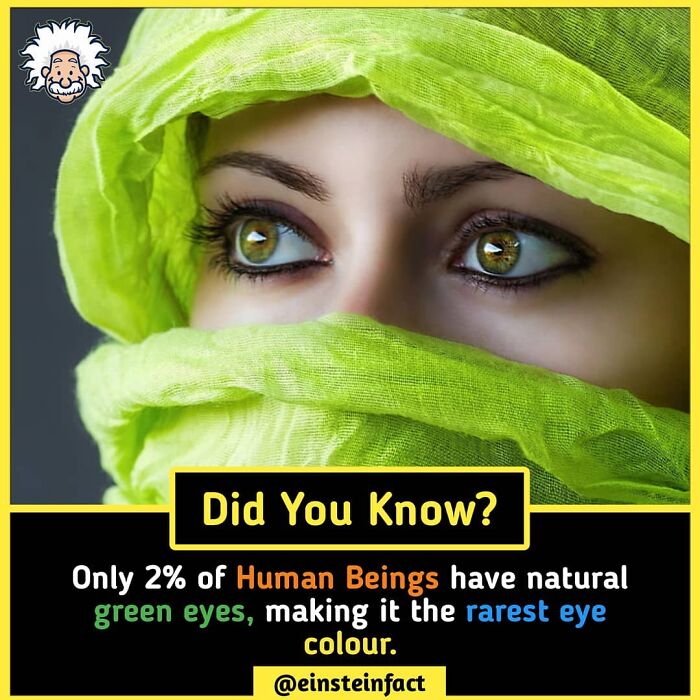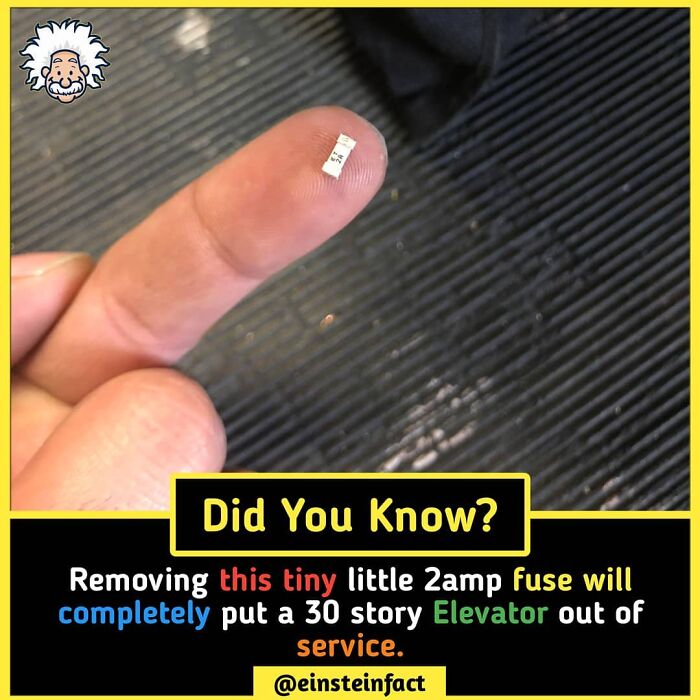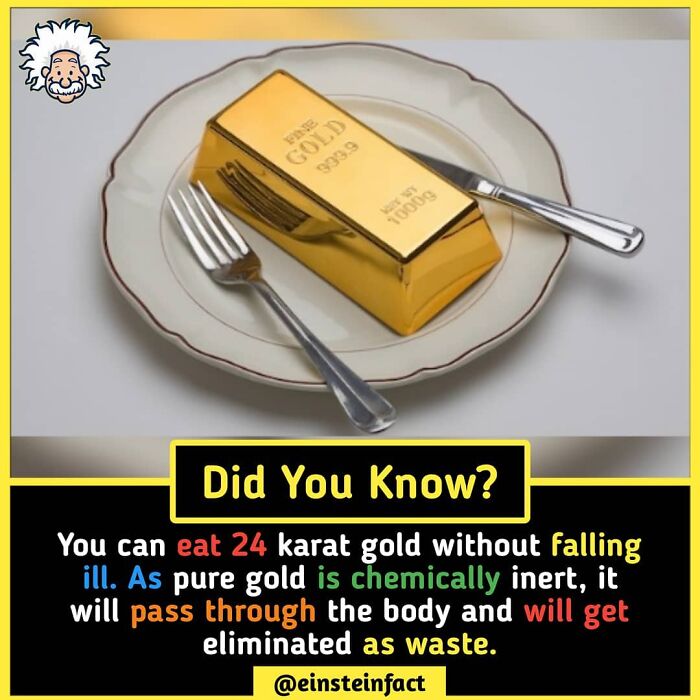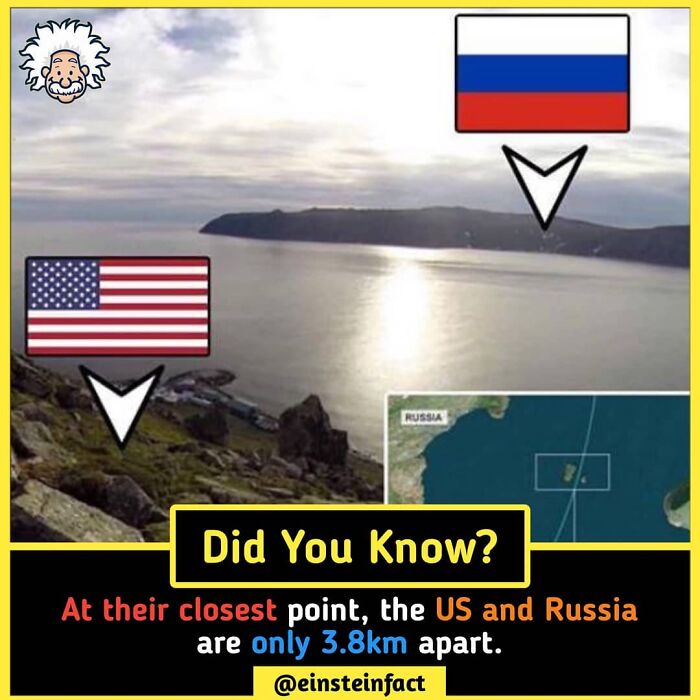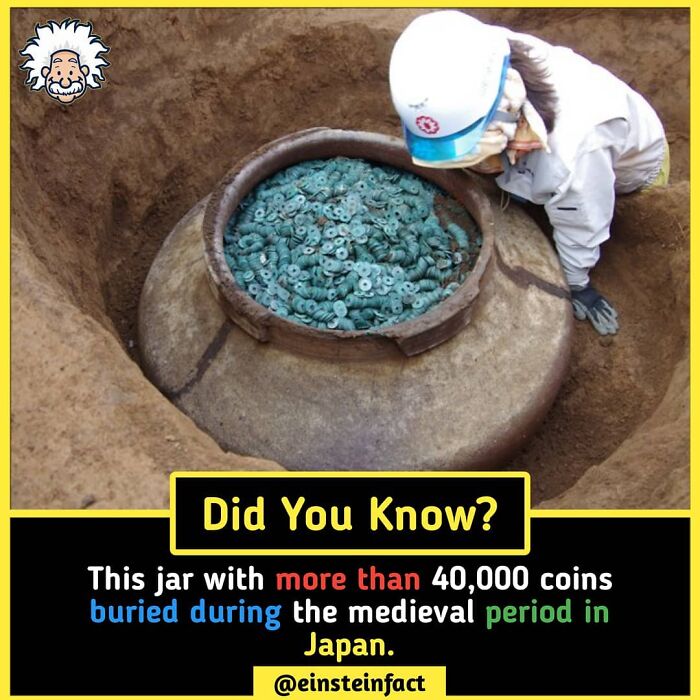Did you know that sloths can hold their breath longer than dolphins can, or that it would take more than 1,200,000 mosquitoes to completely drain the blood of an average human? Well, now you do!
In today’s technological age, we can access the world’s knowledge without having to leave the house. Having a working computer and the internet is enough to explore the depths of information flowing at the speed of light. All the new ideas, perspectives, and insights are at our fingertips. The only thing you have to do is want to learn something new. And if you do, “Einstein Fact” is here to help!
With more than 110 thousand followers on Instagram, “Einstein Fact” makes sure that our brains are fed with some fresh information about the world we live in. From random facts you didn’t even know you needed to really useful material, there’s tons of knowledge to impress others! Scroll down to add an extra wrinkle to your brain!
#1
Image credits: einsteinfact
#2
Image credits: einsteinfact
#3
Image credits: einsteinfact
Learning doesn’t stop at school or university. The key to remaining relevant, in sync with the latest trends, and able to adapt to the ever-changing world is to have an insatiable appetite for learning. We here at Bored Panda always want to learn something new, so we reached out to Nate Kornell, Ph. D., a professor of cognitive psychology at Williams College, to ask some questions about learning and memory. Scroll down to read the whole interview!
#4
Image credits: einsteinfact
#5
Image credits: einsteinfact
#6
Image credits: einsteinfact
Nowadays, there’s an overabundance of information, easily accessible to anyone with an internet connection. It’s simply impossible to get a grip on all of the ‘flies on the web’. Even after filtering the information, it might be hard to remember all the interesting facts over the long term. Speaking about flies and memory, Nate Kornell shared that memories are kind of like flies in a web. “Sometimes flies escape, so it helps to connect them to the webbing as many times as you can. Similarly, you can make a new memory stick by thinking about how it connects to other things you know. (A great deal of research has demonstrated this finding.) It also helps to close your eyes and quiz yourself on what you learned, and to return to it after a significant interval of time.”
#7
Image credits: einsteinfact
#8
Image credits: einsteinfact
#9
Image credits: einsteinfact
In a world where vast amounts of information are available at our fingertips, you might be wondering if it is important to focus on improving our memory and learning techniques. According to Nate Kornell, remembering facts is less necessary now that we can just ask our devices. “But at a deeper level, it’s never been more important. Creativity and innovation often take the form of noticing connections between different ideas, and you can’t do that unless you have stored a lot of ideas in your memory. Personal growth and work productivity are all about developing and learning. I believe that successful people are often the ones who continue to learn and grow when others have reached a plateau.”
#10
Image credits: einsteinfact
#11
Image credits: einsteinfact
#12
Image credits: einsteinfact
We asked Nate Kornell if there are certain types of information that are easier to remember than others. “There’s a legend that Bill Russell, the great Boston Celtics basketball player, could remember an almost limitless number of specific plays from specific games that had happened many years earlier. This kind of memory is possible because he was such a basketball expert. Russell understood the game so well that to him, every play was vivid and unique and distinctive. In general: The more you know about X, the easier it is to encode new information about X. We’re also highly attuned to human stories, and so they are far easier to remember than facts or statistics,” the professor answered.
#13
Image credits: einsteinfact
#14
Image credits: einsteinfact
#15
Image credits: einsteinfact
Learning allows us to acquire knowledge, make decisions, and adapt to our environments. However, not everyone learns and remembers information in the same way. Nate Kornell shared that memory abilities peak when a person is in their 20s. “The subsequent decline tends to be slight and imperceptible for a long time. There are also individual differences in memory ability; interestingly, though, having a powerful memory is not always helpful in life. Anecdotally, at least, people with truly exceptional memories have not found it to be much of an advantage in work or social situations (Alexander Luria wrote a case study about one such case in The Mind of a Mnemonist).”
#16
Image credits: einsteinfact
#17
Image credits: einsteinfact
#18
Image credits: einsteinfact
#19
Image credits: einsteinfact
#20
Image credits: einsteinfact
#21
Image credits: einsteinfact
#22
Image credits: einsteinfact
#23
Image credits: einsteinfact
#24
Image credits: einsteinfact
#25
Image credits: einsteinfact
#26
Image credits: einsteinfact
#27
Image credits: einsteinfact
#28
Image credits: einsteinfact
#29
Image credits: einsteinfact
#30
Image credits: einsteinfact
Go to Source
Author: Mindaugas Balčiauskas


